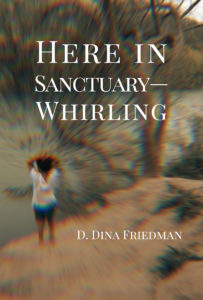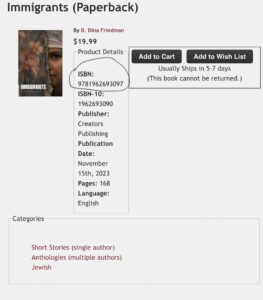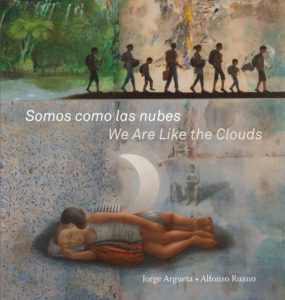This Friday, February 23rd, is the official birthday of my new book, Here in Sanctuary–Whirling, a collection of poetry inspired by my work in the immigration justice movement.
 So this week, I’m feeling myself floundering as I try to get all the pieces in place for a perfect birthday party.
So this week, I’m feeling myself floundering as I try to get all the pieces in place for a perfect birthday party.
When my children were little, birthday parties were a huge stress. My older child, especially, wanted everything exactly how she wanted it… the color of the plates, the order of activities, the guest list/seating arrangements, and where she would stand to hand out the paper for an art activity featuring red and blue food coloring. My younger child was a little more chill, but I do remember making several calls before I found a baker who would be willing to do a birthday cake with a salamander on it (a picture, thank goodness–not a real salamander, though I’m sure a live one would have been preferred!)
Keeping a bunch of pre-schoolers entertained for two hours, containing their sugar-induced energy, and making small talk with parents I didn’t know while wondering how much they were judging me for the cleanliness of my house, my parenting style, my children’s uncensored responses to gifts they didn’t like all heightened the anxiety. I loved hanging out with my children, but I dreaded birthday party season!
Luckily, a book can’t tell you want it wants the way a child can. But this also means all the pressure is on me. As I sift through a nauseating number of articles and listserv comments on book marketing, I’m recognizing some important things about myself. I did succumb, as suggested, to posting myself on video on Instagram opening up my box of books, even though I thought it was silly. But ultimately I still believe parties should be low-budget affairs. I’m not interested in the $100/day plan, or anything that requires huge monetary investments, even when I’m promised that investing a daily $100 will net a daily $150. I got into this to be a writer, not a business person and I refuse to think of my work as a commodity that I have to manipulate an audience into buying. As it is, I’m already spending too much time in my analytical marketing brain rather than my dreamy and comfortable writing brain.
But the goody-goody schoolgirl who also lives inside me reminds me that I can’t simply do nothing. My book will be so disappointed if I don’t give it a birthday party! Yet, I’m going to delay the big launch until May, where it can be in conjunction with a photography exhibit on detention that my immigration justice group is putting on at the Anchor House of Artists. I’m still coming off my last book (Immigrants‘) birthday party (also delayed) which I’m glad to finally be on the other side of, even though I was wowed by the love and support of nearly 50 guests who showed up. I hope they liked the color of the plates (brown, compostable) and the gluten-free brownies.
In the meantime, I’ll invite people to wish Here in Sanctuary–Whirling a happy birthday on social media. And the gift this book would love more than anything else, for anyone who feels so inclined, is a review on Amazon or Goodreads. I guarantee, unlike my kids, the book will not talk back, no matter what you say. Or if you’re not someone who ever reads poetry, you can say happy birthday by adding the book to your Goodreads “want to read” shelf.
One birthday party I am co-planning and looking forward to is my mother’s. She’s turning 90 just a few days after my book is officially born. I’m thankful she’s never cared about the color of the plates. I got to order the cake. It will not have a salamander.



 and that didn’t happen until six weeks after the book was published. In the meantime, I was grateful to the bookstores who were willing to take copies of
and that didn’t happen until six weeks after the book was published. In the meantime, I was grateful to the bookstores who were willing to take copies of 
